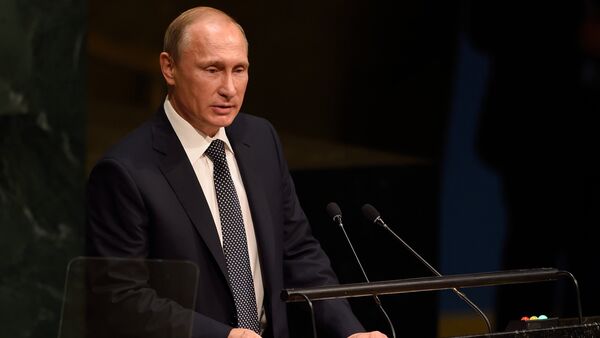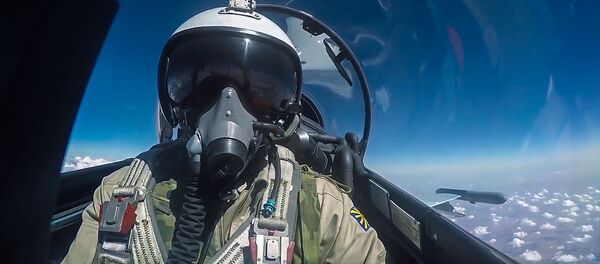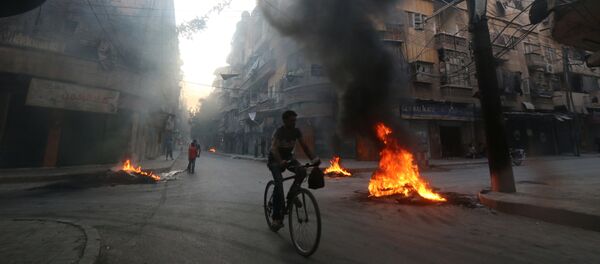On September 28, 2015, speaking at the UN General Assembly in New York, Putin called for the creation of a broad coalition against terrorism. A year on, Moscow's Western partners, including the United States and European powers, have refused to heed the Russian leader's call, preferring to act independently.
However, this strategy has proven ineffective. Daesh (ISIS/ISIL), on the retreat from its original self-proclaimed 'caliphate' in Syria and Iraq, has spread its influence elsewhere in the Middle East and North Africa. Meanwhile, major cities in Europe and the US have been subjected to repeated terror attacks. Throughout, Moscow has maintained that it is still prepared to form a broad anti-terrorist front, and to cooperate in other formats.
What Did Putin Say Exactly?
The president explained that unfortunately, "aggressive [foreign] intervention rashly destroyed government institutions and the local way of life. Instead of democracy and progress, there is now violence, poverty, social disasters and total disregard for human rights, including even the right to life." Then, making a remark which has become famous around the world, Putin said that he was "urged to ask those who created this situation: do you at least realize now what you've done?"
Putin called on the world community to assist the legitimate government in Syria, to restore state structures in Libya, to support the new government in Iraq and to create a broad international coalition against terrorism. "Similar to the anti-Hitler coalition, it could unite a broad range of parties willing to stand firm against those who, just like the Nazis, sow evil and hatred of humankind," the president said.

Another Missed Opportunity
Unfortunately, a year on, Putin's appeal has yet to be answered. On the contrary, last month, shortly after helping Moscow broker a second ceasefire in Syria, Washington reneged on its obligations, bombing a Syrian army position in Deir ez-Zor, failing to separate 'moderate rebels' from terrorists in rebel-controlled areas, and baselessly accusing Moscow and Damascus of an attack on a humanitarian convoy in eastern Aleppo.
Eight years later, in 2011, Russia compromised again, and did not block the UN Security Council resolution on Libya, which Western leaders assured Moscow was aimed only at protecting Libya's civilian population. NATO forces soon destroyed Libya's army, and jihadists tortured and murdered the country's leader, Muammar Gaddafi, after which the country disintegrated.
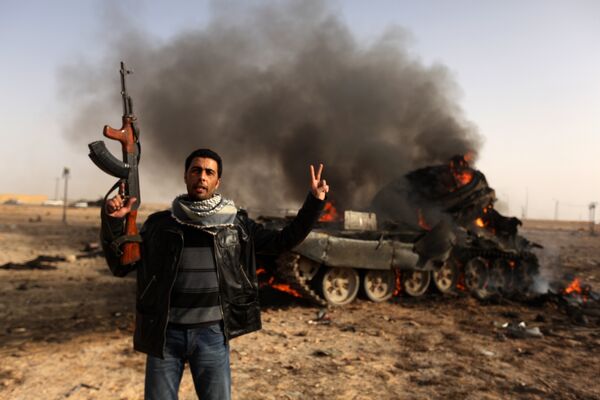
After terrorist attacks rocked Paris last November, French leaders threatened to wage a grand campaign against the terrorists, even sending the French aircraft carrier Charles de Gaulle to the Mediterranean. Vladimir Putin immediately ordered Russian ships operating there to cooperate with the French "as allies."
"Everything seemed to be coming together, finally, in favor of cooperation," RIA Novosti noted. "However, French fervor in the fight against Daesh soon disappeared."
Why is this happening? Experts speaking to the news agency suggested that it's because Russia and Western countries have different priorities, on Syria in particular.
Boris Dolgov, a senior researcher at the Center for Arab and Islamic Studies at the Institute of Middle East Studies, explained that "Washington has totally different objectives in the Syrian conflict than Moscow. Among them is removing Bashar Assad by any possible means, and dismembering Syria as an ally of Iran."
For his part, First Politics editor-in-chief Marcus Papadopoulos lamented that Western countries simply do not have any interest in a broad anti-terrorist coalition with Russia.
"Speaking about 'missed opportunities' regarding the failure to create a coalition between Russia and the West is pointless, because the Americans and British are not going to bomb their agents in Syria," Papadopoulos stressed. In reality, the analyst suggested, the US has made overthrowing Assad a priority, to the extent that they are willing to use terrorist hands to do so. "Why would they join a coalition with Russia? To strike at the same terrorist groups which they have supported with arms and money over the last five years?" Papadopoulos asked.
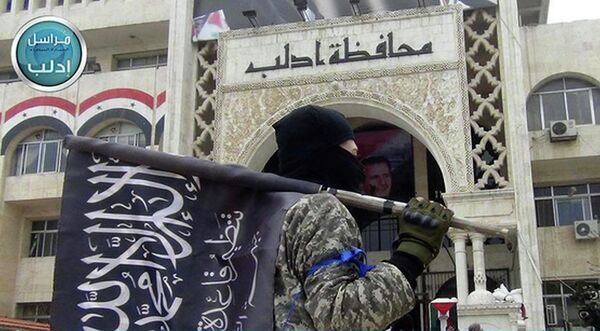
Vladimir Sotnikov, a senior fellow at the Institute of World Economy & International Relations' Center for International Security, was more optimistic. The important thing, he suggested, was that Russia put forward the proposal, and that the offer basically remains on the table. He hinted that perhaps such a coalition can be created following presidential elections in the US in November, pointing to Donald Trump's proposals that the US and Russia can 'knock the hell out of ISIS together'.
Sotnikov warned that if a broad coalition is not established, terrorism threatens to engulf not just the Middle East, but the world as a whole, as evidenced by the series of coordinated and lone wolf attacks on European cities over the past year. "The winners [from a lack of coordination between Russia and the West] are the terrorists, first and foremost Daesh," the analyst concluded.

